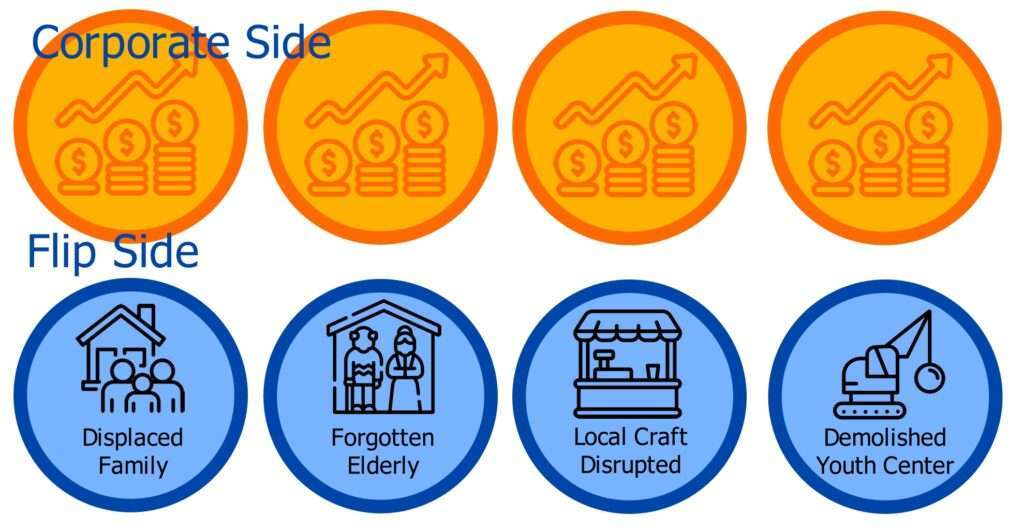Heya friendos! It’s been nice being holed up in my little nest this winter. The weather has been pretty surprising the past week, with constant freezing temperatures. Supposedly because of climate change, which doesn’t bode well for the future. Speaking of the future, that’s the theme for this week!
How Am I Doing?
Tired, fired and inspired! Last week I played Daybreak with some friends. It’s a recently released board game co-created by the designer of Pandemic. It’s a cooperative game where you try to dial back emissions while trying to survive the effects of climate change. It’s pretty good! There’s this interesting juxtaposition in the game: it’s a utopian premise where world powers come together and agree on policies, but then it’s still pretty hard to win before complete catastrophe.
It got us talking about board game design, which re-ignited my prototyping addiction. I haven’t picked up the pen yet, but there’s an idea bubbling in my head. It’s not fully formed but it goes something like this: an asymmetrical 2 player game about mobilizing against gentrification. One player controls corporations/upper class. They manage “business opportunities” like real estate on a map. It’s all cold calculation, homogenous, faceless tokens, and hard cash.
The other player manages local communities who are impacted by such decisions. When it’s their turn, they flip all the “business opportunity” tokens and reveal a personal story on each one. What was cheap real estate for the corporations, evicts many low-income families with nowhere to go. A local market square makes way for a brand-new office building for multinationals. That kind of stuff.

I love the idea of having completely different perspectives per player on what is essentially the same data. One person sees statistics, the other sees humans. I would love to work on something like this in the future. It engages a part of my brain that gets rusty sometimes. The political. It’s a privilege to be able to not care about politics. Sometimes I need a little reminder of that.
What Am I Doing?
Speaking of business opportunities, I also properly planned out my finances. If all the stars are aligned in my favor, I can comfortably do my own thing (funemployment) for more than 2 years. That’s… a relief. When I saw it laid out before me, I couldn’t believe my eyes. I wasn’t worried about money or anything, but having a 2-year runway gives a lot of breathing room. It means I can safely fail some projects, so I don’t have to be too “success” oriented in the future.
In a previous newsletter, I mentioned a series of case studies I was recording. They are short videos that highlight a mechanic or interesting narrative device from a specific game. The goal is to recommend games to play for people who want to learn about narrative design. But I’ve run into a problem… I don’t know what to call it! If you have any suggestions for a good title for something like this: please let me know!
Why Am I Doing? (this)
Why am I doing a future theme for this newsletter? Well, mostly so I have this lazy segue into a thought I had about comedy. You see, there is a prophetic power to comedy. I’ve been thinking about why the Simpsons (and South Park in a lesser capacity) predicted so many things that came true in the end. I’ve been thinking about why that is. I ended up with a theory.
A lot of comedy is rooted just enough in reality to be relevant but then swerves to absurdity. For this curveball to be effective, the basis for a joke must be at the very least well-informed enough to be relatable.
So you might look at a gag and ask yourself: “Who might be the US president in the future?” You look at some public figures with an interest in politics, assume that the future will be even more consumerist than it is now, and people might start worshipping a flamboyant businessman. Then you look at everyone who meets those conditions and might be an actual serious contender for president and throw them out the window. You pick the most satirical, absurd, ridiculous contender instead. OK funny joke, but how can it possibly come true?

So here’s the kicker. The world is always becoming more “absurd”. If you show the current state of the world to someone twenty years ago, they would probably find some aspects of it quite bizarre. Zeitgeist is fickle that way.
Absurdity can only exist in opposition to a well-grounded normality. If everything is strange all the time, there is no benchmark for absurdity. I think during lockdowns we all saw crazy things in the news or from each other, and at some point gave up marveling about it all. This is because there was no normal anymore. You can’t throw a curveball if there’s no baseplate of normality to pitch it from.
Naturally, anything that veers too far away from normality will be considered absurd. As the world changes over time, it WILL diverge from the normality of the previous age. So in a way, every absurdist joke is a guess on the trajectory the world is heading in. And like any guess, if you make thousands of them, there’s some bound to be in the ballpark of the truth.
It just goes to show that the truth is stranger than fiction!
Conclusion
Thanks for reading this thinly veiled collection of unrelated stories I try to stomp into a coherent shape! If you’re wondering about the state of Clysmoids, or that Pokédex thing I mentioned in last week’s newsletter: don’t worry, it will come… in the future 😉
